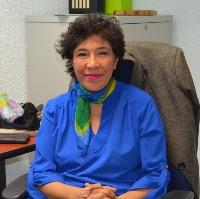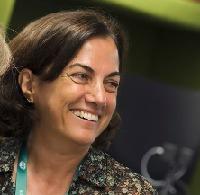Blog
Unless otherwise stated, content is shared under CC-BY-NC Licence
Tiered Storage and the Case of the Labor-Intensive Derivate
Author: Walker Sampson, University of Colorado, Boulder; in collaboration with Keith Pendergrass, Harvard Business School, Boston; Tessa Walsh, Artefactual Systems, BC, Canada; Laura Alagna, Northwestern University Library, IL;
For the past several years, Keith Pendergrass, Tessa Walsh, Laura Alagna, and I have been exploring how to make digital preservation more environmentally sustainable. Recently, we have focused on building a global community of practice, striving to add environmental sustainability as a third, co-equal pillar of digital preservation practice along with digital object management and successful use. We began our work with a research article, then created a workshop protocol, and have been engaging in outreach and education efforts. We are honored to be a Digital Preservation Awards finalist for the Dutch Digital Heritage Network Award for Teaching and Communications.
We have written a couple of blogs posts on our work previously, first discussing our workshop protocol and then providing details on implementing policy and workflow changes at Baker Library Special Collections. Here I would like to describe efforts at the University of Colorado Boulder to generate guidelines on the use of three storage tiers. In our article we recommend storage tiers as a way to accommodate retention needs for a range of content – some of which may not merit or immediately need top-tier storage. I suspect many institutions may have multiple storage options available to them, with varying qualities to each – though here, we have just begun the process of organizing these options into a unified strategy.
El Programa de Webinars de la RIPDASA nominado para los Premios de la Coalición de Preservación Digital (DPC)
Perla Olivia Rodríguez Reséndiz - Coordinadora de la Red Iberoamericana de Preservación Digital Sonora y Audiovisual (RIPDASA) / Investigadora de la Universidad Nacional Autónoma de México (UNAM)
La nominación del Programa de Webinars en español de la Red Iberoamericana de Preservación Digital Sonora y Audiovisual (RIPDASA) a los Premios que cada año otorga la Coalición de Preservación Digital (DPC) es un estímulo al trabajo que desde 2019 llevan a cabo los investigadores y profesionales de esta red de investigación.
El Programa de Webinars fue creado por la RIPDASA con el propósito de difundir información práctica y experiencias profesionales sobre la gestión y el cuidado de los archivos digitales para minimizar el riesgo de pérdida de las colecciones sonoras y audiovisuales en la región.
La RIPDASA se creó para compartir saberes y experiencias de Universidades, instituciones de la memoria, empresas y organismos internacionales de la región a fin de favorecer la investigación científica en torno a la situación y perspectivas de futuro de la herencia sonora y audiovisual y con ello, proponer soluciones ante su riesgo de pérdida.
Fraserburgh on Film
Andrew Davidson is a student at Robert Gordon University in Aberdeen.
Fraserburgh is a small coastal town that sits on the North East corner of Scotland. It was the birthplace of abolitionist James Ramsay in 1733; one of the founding fathers of modern Japan, Thomas Blake Glover in 1838; world renowned fashion designer, Bill Gibb in 1943; and me, in 1985.
I am in no way suggesting that my name be added alongside theirs in the annals of the town’s history, the only thing we hold in common is that we all at one point in time lived in the same place. However, to convolute this idea and confuse our commonality further, it might be more appropriate to say we all lived in the same geographical region but arguably all lived in different places.
Growing up in the 1980s and 90s, Fraserburgh was still very much a summer holiday destination with two caravan parks that ran alongside what was once the railway line, full of families who came for the beach and, believe it or not, the mild summer weather. The harbour full of boats landing fish from the North Sea and the town centre, a thriving hub of small local businesses.
The LONTAD project
Maria José Lloret Alcañiz is the Digital Preservation and Access Managera at the United Nations Library & Archives in Geneva.
The United Nations Library & Archives in Geneva are responsible for the preservation of the archives of the League of Nations (LON) and have the mission to make them accessible for researches and historians around the world. The access is public, but the paper archives must be consulted on site; that’s probably the main reason why most users are coming from Europe and the US.
That was the situation before the 5-years ‘Total Digital Access to the LON Archives Project’, known as LONTAD, was born. The project will provide for the digitization, physical and digital preservation and online access of the LON Archives.
I remember the day, in mid-2017, when I first heard about the donation that our Director General had received from a Geneva foundation, to support the digitization of the entire LON Archives. I had been working in the Library & Archives for many years, managing a team in charge of the computing infrastructure and IT systems, including the Archives Management system. But, to be honest, I knew very little about the contents that my colleagues were cataloging into the system. The project sounded really interesting for the archivists, of course, but it was also challenging for an IT professional, so I didn’t hesitate to join the management team and take over the responsibility for technology, including digital preservation. From the beginning, it was clear that the latter was an essential component of the project which represents an enormous undertaking, requiring a substantial investment: we could not take the risk that one day the digitized material might be lost or become unusable.
Amplifying Change: The Making of a Digital Archive
Anja Mahler is a Digital Archivist, Atlantic Philanthropies Archive Project, Digital Repository of Ireland.
Before I took up the position of digital archivist for the Atlantic Philanthropies archive project in early 2018, I did not know much about Chuck Feeney and the extent of his philanthropic investment on the island of Ireland. Conor O’Clery’s book The Billionaire Who Wasn't: How Chuck Feeney Secretly Made and Gave Away a Fortune provided me with great insight into the work of the Atlantic Philanthropies. Soon after I took up my position, I travelled to New York to visit Cornell University. I got to see the physical archive held at the Division for Rare and Manuscripts Collections and I also gained exclusive access to The Atlantic Philanthropies grant management system for Ireland and Northern Ireland. It was then that I grasped the great extent of this archive. It was not, however, until I got to look closely at the grant files, which contain records that document the entire life cycle of grants-from proposals to final reports and rich ephemera, that I experienced a sense of awe because I realised the vast impact of the Atlantic Philanthropies. I recall cataloguing the document Action Plan on Bullying and how that acted as a catalyst for me to realise the sheer amount of combined energy needed to bring about societal change. My dear colleague Phoebe Lynn Kowalewski, the Atlantic Philanthropies Archivist at Cornell University Library, put it this way to me very recently:
WDPD 2020 - Royal College of Nursing
Fiona Bourne is the Archives Manager at the Library and Archive Service for the Royal College of Nursing in Edinburgh.
It’s a strange feeling to be quietly working at home with a laptop and a cup of tea one day, to suddenly be addressing the world at large about digital preservation the next. Many archivists around the world have been doing just that this year, at home keeping pets off the keyboard and family off-screen or battling against appalling internet connections. They have been struggling to keep their archive open, the collections safe and to progress their projects. But the benefits to digital record-keeping and preservation have evidently been immense as I found out at the iPRES 2020 conference. As DPC award finalists we were asked to do a lightning talk about our nominated project, A new way of sharing nursing history – Royal College of Nursing member and public digital archives
My organisation is the Royal College of Nursing (RCN): a professional association and trade union for nurses and healthcare workers with over 470,000 members. We provide guidance on clinical and professional practice, legal representation in employment relations, pay negotiations and political lobbying. The organisation is over 100 years old and is known as the ‘voice of nursing’ for the UK. Sharing that history is a critical part of my role, but the ease of digital accessibility has blurred the lines I work within. Historical record series’ now run right up to the present bringing new audiences and new problems. A public digital archive website provides access to selected records, such as publications and annual reports, but many of our records cannot be shared publicly.
Enabling research: digital access during lockdown
Lotte Wijsman is a Student at the University of Amsterdam (MA Archival and Information Studies) & Intern at the National Archives of the Netherlands
After several months at home, it has become time to take stock regarding productivity. At the start of the lockdown, people spoke about all the things they could do now that they would be stuck at home. Whether this was to DIY or to learn another language, it was all ambitious. For me, none of these ambitions have come to fruition. However, several others did. I completed my paper on the significant properties of spreadsheets, which was part of my internship at the National Archives of the Netherlands. Moreover, I am now working on my Masters thesis on reference rot, while in lockdown and without physical access to the university library. This would all be impossible without digital preservation.
Against All Odds
Authors: Tom Wilson, Charlie Barbe and Patricia Sleeman for the UNHCR.
UNHCR is at the forefront of one of the most critical crises facing the world in the 21st century – that of displacement. 79.5 million people - 1 percent of the world’s population - have fled their homes due to conflict or persecution. Preserving ‘the history of now’, for present and future generations, has never been more complex or essential. UNHCR Records and Archives Section (RAS) preserves not just the legacy of UNHCR’s work but also of humanity. Though small in size, it supports a global staff of over 17,000 and has an ambitious vision.
Since 1996 UNHCR has preserved critical digital information about situations that have shaped our world and it continues to do so. Faced with the largest refugee crisis the world has ever seen, UNHCR has a mandate to protect some of the most vulnerable in our global society – refugees, the internally displaced and stateless. This includes the preservation of its records and archives. Preserving the digital legacy of UNHCR is the protection of the legacy of humanity. The digital content selected for preservation is testament to the work of UNHCR and a record of the victims of emergencies, for now and for generations to come.
Capture can be challenging due to the complexity and the speed at which UNHCR operates in some of the most dangerous places in the world. UNHCR’s digital content is highly valued but often for its primary value due to the rapidity of response needed for emergencies and operations in the field and UNHCR is often an early adopter of new technologies, often challenging to preserve. Also, a continual staff rotation policy is challenging for information management.
Please be upstanding for the Digital Preservation Awards Finalists
This World Digital Preservation Day is a bit different to those we have experienced before, but certainly no less important and relevant. Coinciding, as it does every two years, with the Digital Preservation Awards, we had grand plans for a spectacular contribution to the days’ proceedings … an awards ceremony to be held at the newly opened Bibliothèque nationale du Luxembourg!
However, as the events of the year unfolded, it was clear that those plans would not be possible, and we even (very briefly) considered whether we would run the Digital Preservation Awards at all… after all, surely everyone everywhere had bigger fish to fry?!
But then it struck us, that the Digital Preservation Awards was exactly what we needed in a year like this. In fact, even more so! Hard work, excellent, clever, innovative work was still going on in spite of – and because of – the global crisis… albeit generally from spare rooms and dining tables rather than offices and labs.
Preserving websites for Sydarkivera’s member municipalities in changing times
Annie Stille is a Metadata Specialist at Sydarkivera in Sweden
Illustrations from Magnus Heimonen, Web editor and media producer, Sydarkivera
The challenges of web archiving in a rapidly changing world at Kommunalförbundet Sydarkivera described with focus on the digits. Sydarkivera is a municipality organisation founded in the south of Sweden in 2015. Preserving information as an archival authority organisation in times of change is a great challenge. Some of these challenges will be presented in this blog post, written by Annie Stille, metadata specialist and responsible for web archiving at Kommunalförbundet Sydarkivera.
Sydarkivera is a provider of long-term digital preservation services. It acts as the archival authority for several municipalities in southern and central Sweden who are members of Sydarkivera. The purpose of the organisation is to preserve the member’s information flows for future generations.
In today’s society, information flows are rapidly changing and increasing in volume. This puts the onus on actors dealing with digital preservation to be prepared and outward-looking. This is, however, challenging because it is not always possible to predict how the information will be used in the long term. This places considerable technical demands on organisations working with digital preservation in terms of potential formats, technical solutions, metadata, storage and data management. Alongside these technical demands are changes to attitudes towards new situations that require quick action from a digital preservation perspective. Doing nothing or acting too slowly risks information loss.



















































































































































